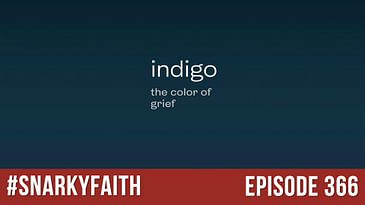In this episode of Snarky Faith, we sit down with Dr. Jonathan Foster, a theologian and author, to discuss his latest work, "Indigo - the Color of Grief." This book is more than just words on a page; it's an immersive journey through the depths of sorrow and the resilience of the human spirit. Dr. Foster shares his personal experience with the tragic loss of his daughter and how it shaped his perspective on grief.
Our discussion is a tapestry of introspection and revelation, examining the dual themes of processing grief in real-time and the decision to share these experiences through writing. Dr. Foster, with his unique blend of mimetic theory and open and relational theology, offers insights into the 'theo-poetic' nature of his book and shares an excerpt to give listeners a glimpse into his narrative style.
We delve into the broader aspects of grief, challenging conventional approaches and discussing how to healthily embrace this complex emotion. The conversation also touches upon 'mourning well' and the power of memory in the grieving process. Join us on Snarky Faith as we navigate these intricate emotional landscapes with Dr. Foster, uncovering the beauty and pain inherent in the human condition.
Get Indigo - the Color of Grief on Amazon
For more: Jonathan Foster's website:
https://www.jonathanfosteronline.com/
Big thanks to these outlets that make the Christian Crazy possible:
Come along for the ride as we skewer through life, culture, and spirituality in the face of a changing world.
Check out the other fantastic Quoircast partners: The Heretic Happy Hour Podcast, Apostates Anonymous, The Messy Spirituality Podcast, Ideas Digest, The New Evangelicals, This is Not Church, and Wild Olive.

